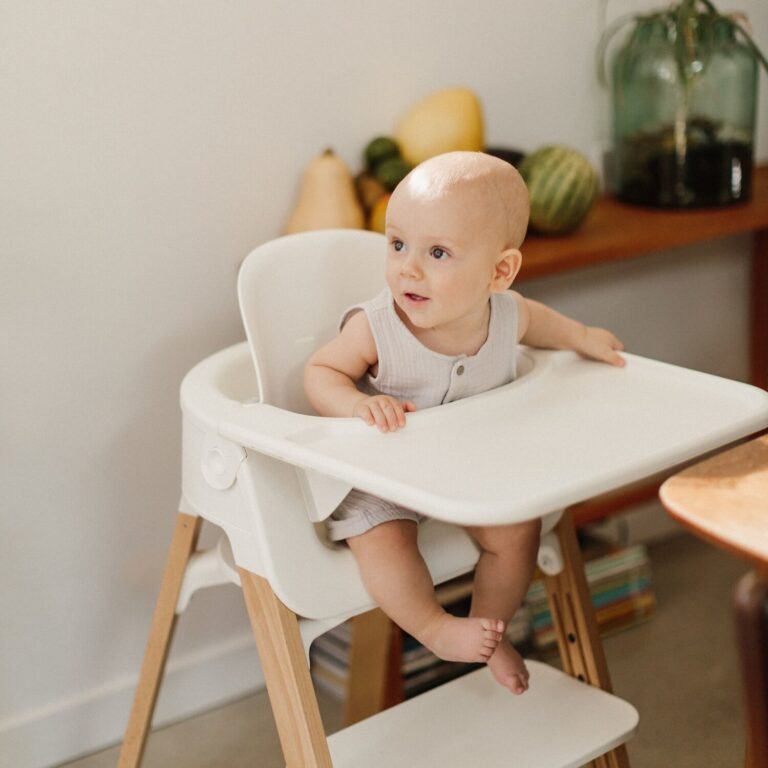A few months ago I did a poll Oh Baby Instagram asking which topic you would like me to write about first: the dark truth about puree pouches or the dark truth about baby cereal. The pouches won, but there was still a lot of interest in baby cereal, so after much prodding I promised I’d share about that too. The thing is, I prefer to focus on all the amazing foods we can feed our babies, not just the ones we should avoid. I also don’t want them to feel bad about the choices they’ve made. We all try to do our best for our little ones! I finally decided to post this because even though baby cereal is one of the most common foods to start solids with, unfortunately it’s not really the best first food to feed our babies.
Baby cereals were first introduced in the 1930s when there was a monumental shift from real foods to processed convenience foods. Formerly known as pablum, mothers were advised to mix it into a bottle with breast milk for babies up to six weeks old. Then, when the baby was about 3 or 4 months old, the paste was mixed into a thicker consistency for spoon feeding.
Launched as an ideal first food for your baby.
Iron-fortified cereal is still a top recommendation for starting solids…even by most pediatricians, and even with today’s clarity about the importance of whole foods vs. refined. Unfortunately, refined grain products are not the healthiest choice for anyone, let alone as a first food to properly nourish a growing baby.
Stripped of its nutrients
Baby cereals are stripped of their nutrients and fiber and are highly glycemic, which causes drastic spikes in blood sugar followed by inevitable fussiness and hunger. Many parents often start solids early in the hope of keeping babies “fuller longer,” but a high-glycemic food such as baby cereal doesn’t contain any of the fat or protein necessary to satisfy a baby for a long time. Baby cereals also taste very bland, which doesn’t set the stage for adventurous eating.
Even if it wasn’t refined, rice is seriously lacking in all the key essential nutrients that a baby really needs when starting solids, such as healthy fat, calcium, vitamin D, choline and natural iron. Baby cereals are fortified with synthetic nutrients, but our focus should undoubtedly be on making sure our babies are eating foods with natural nutrients rather than foods like baby cereals that are fortified with synthetic nutrients. Let’s ditch the processed foods to help prepare our babies for a lifelong relationship with healthy, whole foods.
High levels of arsenic in rice grains
Arsenic exists in the soil, so all plants can absorb some of it. Although, rice is known to be rich in arsenic because it is grown in flooded paddies and absorbs more arsenic than other food crops. As a widely recognized carcinogen, arsenic is currently regulated in drinking water. However, there are currently no regulations regarding arsenic concentrations in foods, including infant rice cereal.
While other foods account for 19% of arsenic exposure in babies aged 4-24 months, rice grains make up 55%.
Enough studies have found that arsenic exposure in rice cereal exceeds US Environmental Protection Agency maximum contamination levels and significantly increases arsenic exposure among babies. Studies show that the toxic effects of rice are of most concern in infants.
What about whole grains for babies?
Some people argue that a baby does not produce enough amylase to properly digest grains. But I actually recommend being careful with grains for an entirely different reason. Grains can be difficult to digest, even for many adults with mature digestive systems. Cereals have substances called phytic acid that inhibit the absorption of minerals such as iron and calcium.
When we look to ancient cultures for wisdom, babies have been fed rice or other grains as their first food in many countries around the world. They also didn’t use pesticides containing arsenic which significantly increased the levels of arsenic present in their rice. However, it is important to note that these whole grains used by these cultures were carefully prepared using traditional methods.
If you include grains as part of your family’s meals, I recommend preparing them properly by soaking, sprouting, or fermenting/pickling increase nutrient absorption and digestibility. I also prefer to wait until baby is reliably eating 3 meals a day with plenty of food at each meal. Babies tend to prefer to “fill up” on cereal if given the choice, but like baby cereals, whole grains do not contain the essential nutrients that a baby needs in high doses during this age. (fat, calcium, vitamin D, choline and natural iron). This leaves less room in their tiny bellies for other foods that are much higher in these nutrients. Finally, cereals are quite bland, and time and time again I see that if babies are exposed to these foods in larger quantities at a young age, it is much harder to differentiate their palates later. Early exposure to a variety of flavors is key!
